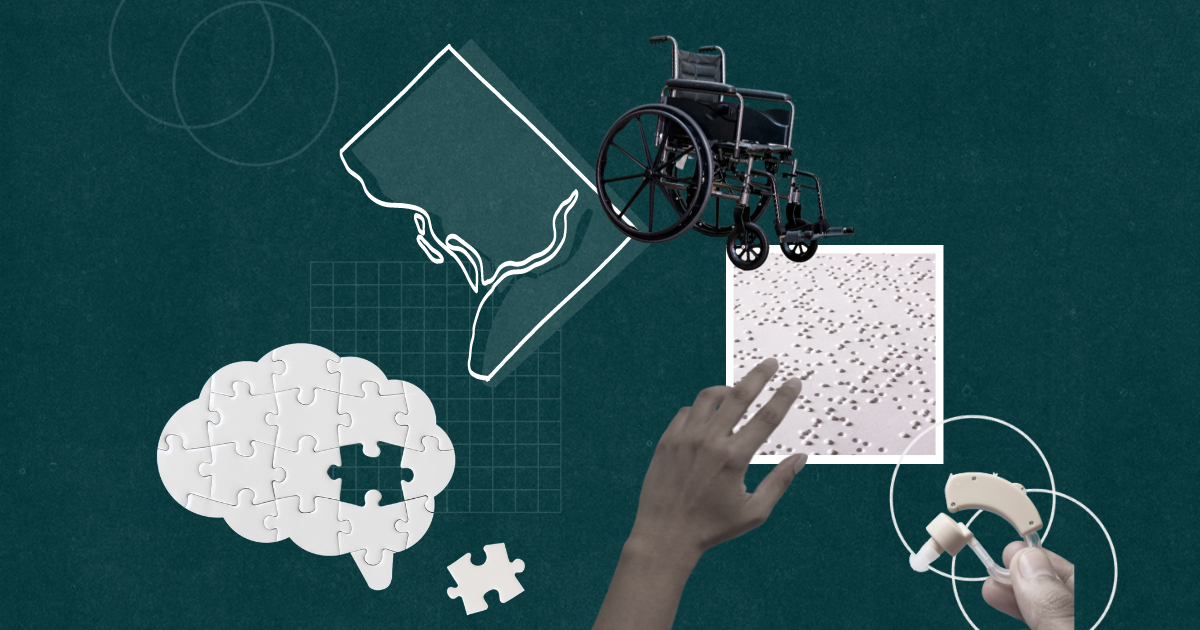

%3Ciframe%20allow%3D%22autoplay%22%20frameborder%3D%22no%22%20height%3D%22166%22%20scrolling%3D%22no%22%20src%3D%22https%3A%2F%2Fw.soundcloud.com %2Fplayer%2F%3Furl%3Dhttps%253A%2F%2Fapi.soundcloud.com%2Ftracks%2F1627029102%26amp% 3Bcolor%3D%2523ff5500%26amp%3Bauto_play%3Dfalse%26amp%3Bhide_related%3Dfalse%26amp%3Bshow_comments%3Dtrue%26amp%3Bshow_user%3Dtrue%26amp%3Bshow_reposts%3Dfalse%26amp%3Bshow_teaser%3Dtrue%22%20width% 3D%22100% 25%22%3E%3C%2Fiframe%3E
When the Washington, D.C. Department of Public Works (DPW) forced Doretha Barber to choose between her medication and her job, she sued to assert her rights.
Ms. Barber, a mother of four, a lifelong Washington DC resident, and DPW employee for over 10 years, had long suffered from back spasms that prevented her from walking, standing, or lifting. Her symptoms also caused severe migraines that often left her in tears. When traditional treatments proved ineffective, Ms. Barber’s doctor recommended the use of medical marijuana. With this treatment, Ms. Barber’s spasms became less frequent and painful.
In response to DPW policy, Ms. Barber informed DPW that she was using medical marijuana. DPW then placed her on involuntary leave, which ultimately became unpaid leave, and told her she could not return to work until she stopped using medical marijuana. She only used the drug outside of working hours. After assistance from the ACLU-DC and Ms. Barber and eventual litigation, DPW placed Ms. Barber in a new position that allowed her to use medical marijuana after hours and ultimately agreed to compensate Ms. Barber for the hardships she experienced while on involuntary leave.
Barber achieved this result by filing a lawsuit under the DC Human Rights Act, which is one of four laws protecting people with disabilities in DC — the others are federal laws, the Americans with Disabilities Act, the Rehabilitation Act and the Fair Housing Act.
Together, these laws provide significant protection against discrimination. And because the experience of disability is often compounded by factors like race, gender, and income, disability law also helps combat other forms of oppression. Disability law is a critical tool in building a fairer and more free DC.
Here’s what you need to know about disability rights in the District.
1. Employers, housing providers and public businesses in the District must comply with disability rights laws.
All employers in the District of Columbia must follow the DC Human Rights Act, all employers with 15 or more employees must follow the federal Americans with Disabilities Act, and employers who receive federal financial assistance must follow the Rehabilitation Act. Education, housing, public transportation, and other public service providers and businesses (such as restaurants and museums) are also subject to the DC Human Rights Act and/or federal disability rights law.
2. Employers, housing providers and public agencies cannot treat people with disabilities less favourably than other people.
Disability rights laws protect people with disabilities from both intentional and unintentional discrimination. For example, if a restaurant intentionally excluded a person who uses a wheelchair from working at the restaurant, it would violate the Americans with Disabilities Act. This is intentional discrimination. The law also protects people from many forms of unintentional discrimination. For example, if a college class played a video that did not have the subtitles that deaf people need to understand the content, it could violate the Americans with Disabilities Act. In this case, the college may not have intentionally discriminated against deaf people, but the video practice had a disproportionate adverse effect on these students and the practice could be unlawful disproportionate impact discrimination.
3. Employers, housing providers, and public businesses must provide reasonable accommodations to people with disabilities.
Employers, housing providers, and public agencies generally must make reasonable modifications to policies that prevent an individual with a disability from performing their job duties, accessing housing, or using a service. These agencies do not have to grant a specific accommodation that an individual requests, but they must show that any modifications they make are reasonable.
For example, in Barber’s case, her employer told her she used medical marijuana outside of work hours and could not keep her job as a cleaning worker. Barber asked for an accommodation that would allow her to keep her job. DPW refused, but after Barber and the ACLU-DC advocated for her rights, DPW agreed to transfer Barber to a different position where the employer would agree to allow her to continue using her medication. Although this accommodation was not Barber’s first choice, it was a reasonable way to allow her to continue working for DPW and continue taking her medication.
Under the law, employers, housing providers, and public entities are not required to provide accommodations that pose an “undue hardship or direct threat” to their operations. Courts tend to determine whether an accommodation poses an undue hardship or direct threat on a case-by-case basis. In making their determinations, courts have weighed the request for accommodation against the entity’s resources, size, nature, and other considerations.
Michael Perloff, staff attorney at ACLU-DC, explains that the law requires reasonable accommodation because “most discrimination against people with disabilities comes from indifference, not intent. That’s why the law requires employers, housing providers, and public agencies to take people’s disabilities into consideration and make accommodations whenever possible.”
4. The first step in requesting a reasonable accommodation is to clarify that a disability policy change is needed.
Generally, the first step in receiving an accommodation is for a person with a disability to tell an employer, housing provider, or business that they have a disability and need an accommodation to perform their job, access a home, or enjoy a service or product.
The request can be verbal or written, informal or formal, and does not have to specifically mention “reasonable accommodation.” The request must make clear 1) that the individual has a disability and 2) that a change in the way the policy or program operates is needed to allow the individual to access housing, work, or benefit from services.
If you believe your disability rights have been violated in the District of Columbia, you can file a complaint with the Washington, DC Office of Human Rights (OHR) or the U.S. Equal Employment Opportunity Commission (EEOC), or you can contact the ACLU-DC to see if they can help.

